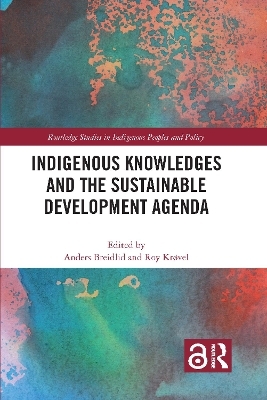
Indigenous Knowledges and the Sustainable Development Agenda
Routledge (Verlag)
978-0-367-42596-8 (ISBN)
This book discusses the vital importance of including indigenous knowledges in the sustainable development agenda. In the wake of colonialism and imperialism, dialogue between indigenous knowledges and Western epistemology has broken down time and again. However, in recent decades the broader indigenous struggle for rights and recognition has led to a better understanding of indigenous knowledges, and in 2015 the Sustainable Development Goals (SDGs) outlined the importance of indigenous engagement in contributing to the implementation of the agenda.
Drawing on experiences and field work from Africa, Asia, Latin America and Europe, Indigenous Knowledges and the Sustainable Development Agenda brings together authors who explore social, educational, institutional and ecological sustainability in relation to indigenous knowledges. In doing so, this book provides a comprehensive understanding of the concept of "sustainability", at both national and international levels, from a range of diverse perspectives.
As the decolonizing debate gathers pace within mainstream academic discourse, this book offers an important contribution to scholars across development studies, environmental studies, education, and political ecology.
The Open Access version of this book, available at http://www.taylorfrancis.com, has been made available under a Creative Commons Attribution-Non Commercial-No Derivatives (CC-BY-NC-ND) 4.0 license.
Anders Breidlid is Professor of International Education and Development, Oslo Metropolitan University, Norway. Roy Krøvel is Professor of Journalism, Oslo Metropolitan University, Norway.
Introduction 1. Beyond the Western paradigm: Indigenization of education systems, the sustainable development goals and state building in Sub-Saharan Africa 2. Indigenous knowledges, education and media in Australia 3. Forest rights act, local collectivization and transformation in Korchi 4. Food System transition in India: A Political Ecology analysis 5. The political ecology of the Tabasará river basin 6. Indigenous ecological knowledge in the Colombian Amazon – challenges and prospects for a more sustainable use of local forest fauna 7. A dialogue of knowledges - What can we bring home from the plurivers? 8. Indigenous good sense on climate change 9. Indigenous knowledges and academic understandings of pastoral mobility 10. Struggling with ‘Clear Zoning’: Dilemmas of Carnivore-Pastoral Coexistence in Nordland, northern Norway 11. Through our stories we resist: A decolonial perspective on south Saami history, indigeneity and rights
| Erscheinungsdatum | 04.05.2020 |
|---|---|
| Reihe/Serie | Routledge Studies in Indigenous Peoples and Policy |
| Zusatzinfo | 3 Tables, black and white; 4 Line drawings, black and white; 8 Halftones, black and white; 12 Illustrations, black and white |
| Verlagsort | London |
| Sprache | englisch |
| Maße | 156 x 234 mm |
| Gewicht | 494 g |
| Themenwelt | Naturwissenschaften ► Geowissenschaften ► Geografie / Kartografie |
| Sozialwissenschaften ► Ethnologie | |
| Sozialwissenschaften ► Soziologie ► Spezielle Soziologien | |
| ISBN-10 | 0-367-42596-3 / 0367425963 |
| ISBN-13 | 978-0-367-42596-8 / 9780367425968 |
| Zustand | Neuware |
| Haben Sie eine Frage zum Produkt? |
aus dem Bereich


